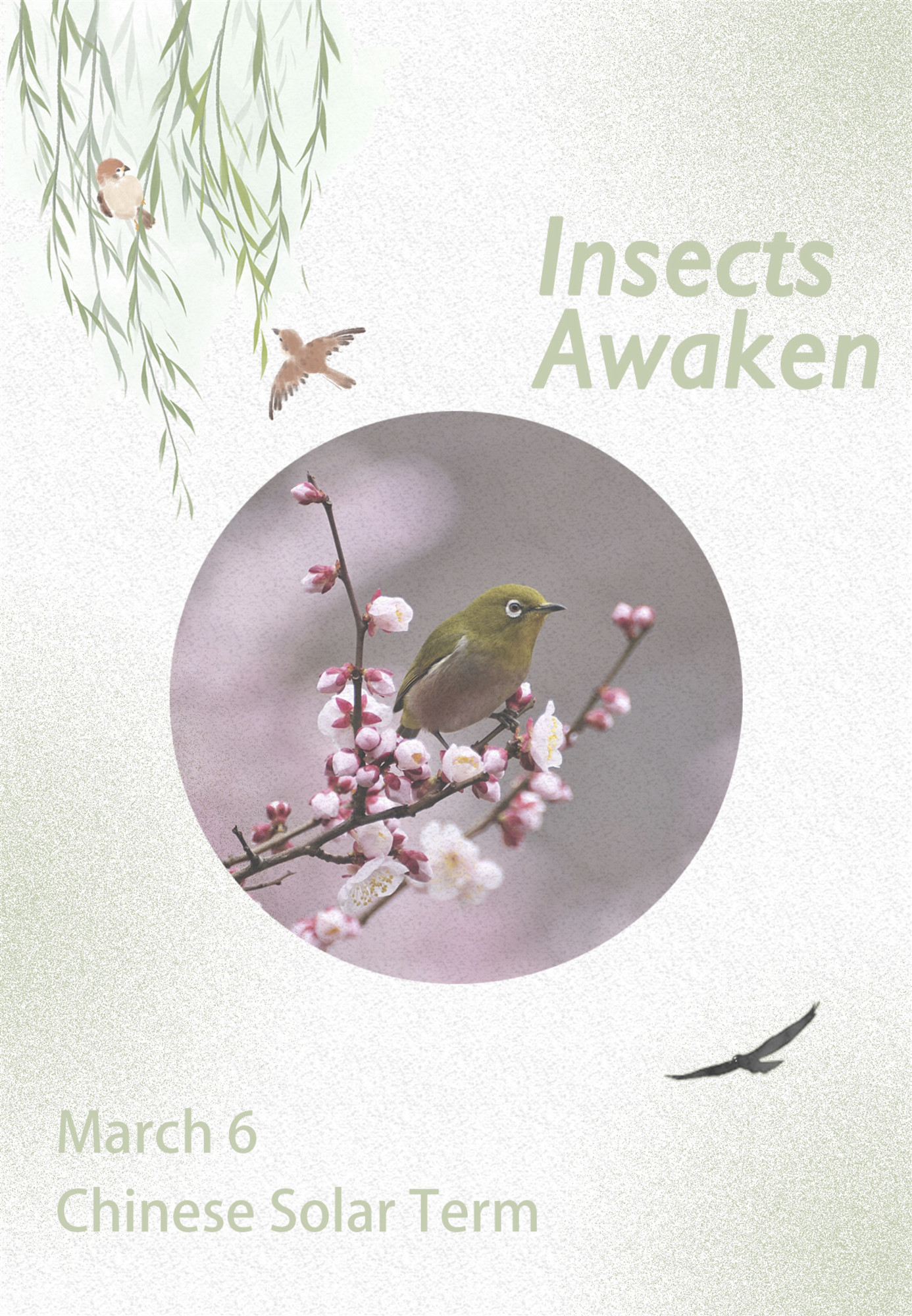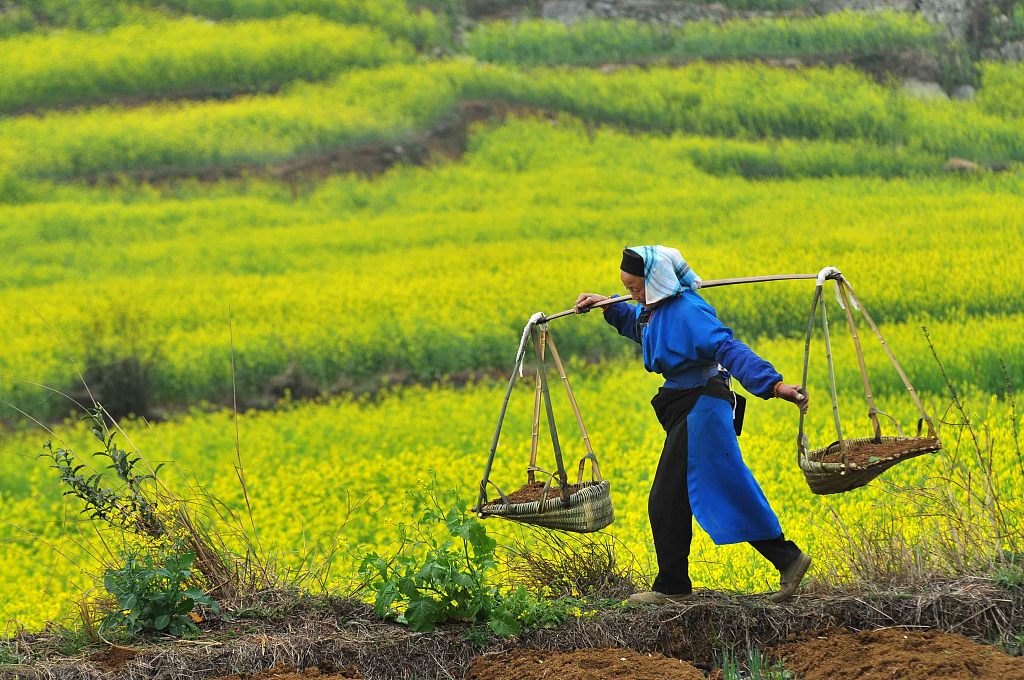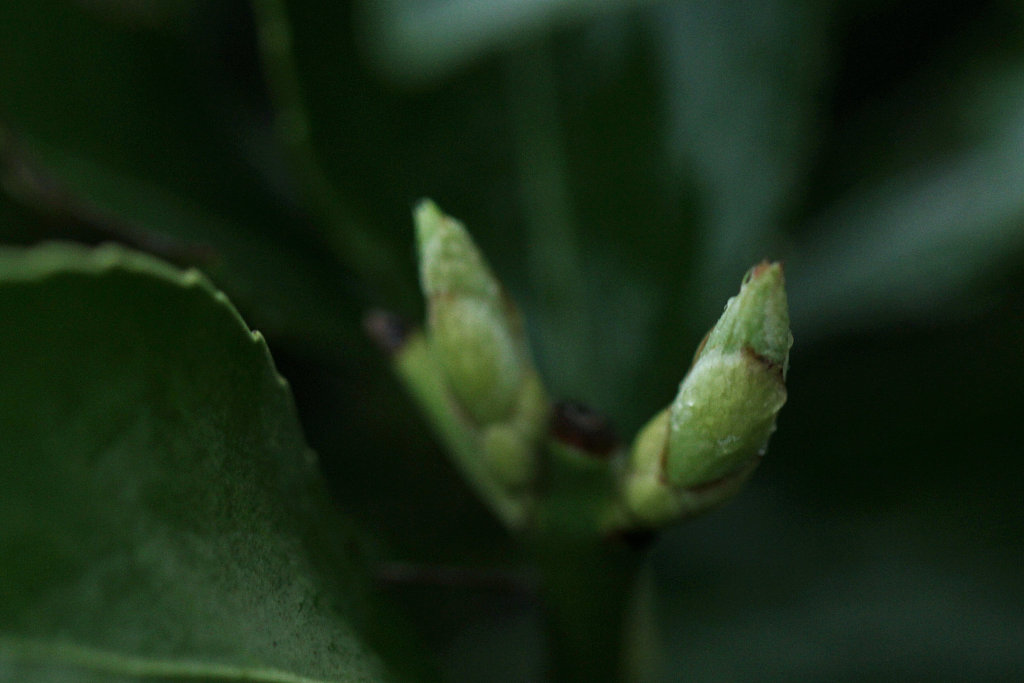Solar Terms is a calendar of 24 periods and climate to govern agricultural arrangements in ancient China to the present. The third solar term Insects Awaken, known as Jingzhe in Chinese, falls on March 6 this year.

(Photo: Xiao Xuetong/ People's Daily)
Insects Awaken refers to the day when the Sun is exactly at a celestial longitude of 345°. Traditional Chinese folklore says that during Insects Awaken, thunderstorms will awaken the hibernating insects, which implies that the weather is getting warmer and everything comes back to life.
Insects Awaken was often described with views of peach blooming, yellow warblers tweeting and swallows flying. As the Tang dynasty poet Wei Yingwu put it, "light rain refreshes bursting buds, and rumbling thunder arouses hidden insects."

Farmers are busy with spring plowing in Xixiu County, Guizhou Province, March 5, 2009. (Photo: VCG)
It is also the time for farmers to start spring agricultural activities after a rest in winter. As the saying goes, "once the Awakening of Insects comes, the hoe never stops."

Plants sprout under the spring rain during Insects Awaken in Huai'an, Jiangsu Province, March 4, 2018. (Photo: VCG)
Eating pears around the Awakening of Insects is a widely-practiced custom. As the weather gets warmer and the air becomes dry, people tend to feel thirsty, which can cause colds or coughs. It is believed that a pear moistens the mouth and lungs to arrest a cough.
The temperature changes greatly in this period, so wearing more is very important, especially for the elderly.
As the weather gradually goes up, it becomes easier for pathogenic bacteria to spread with the spring breeze. To avoid infectious diseases, we should take good care of our health and enhance physical fitness.


